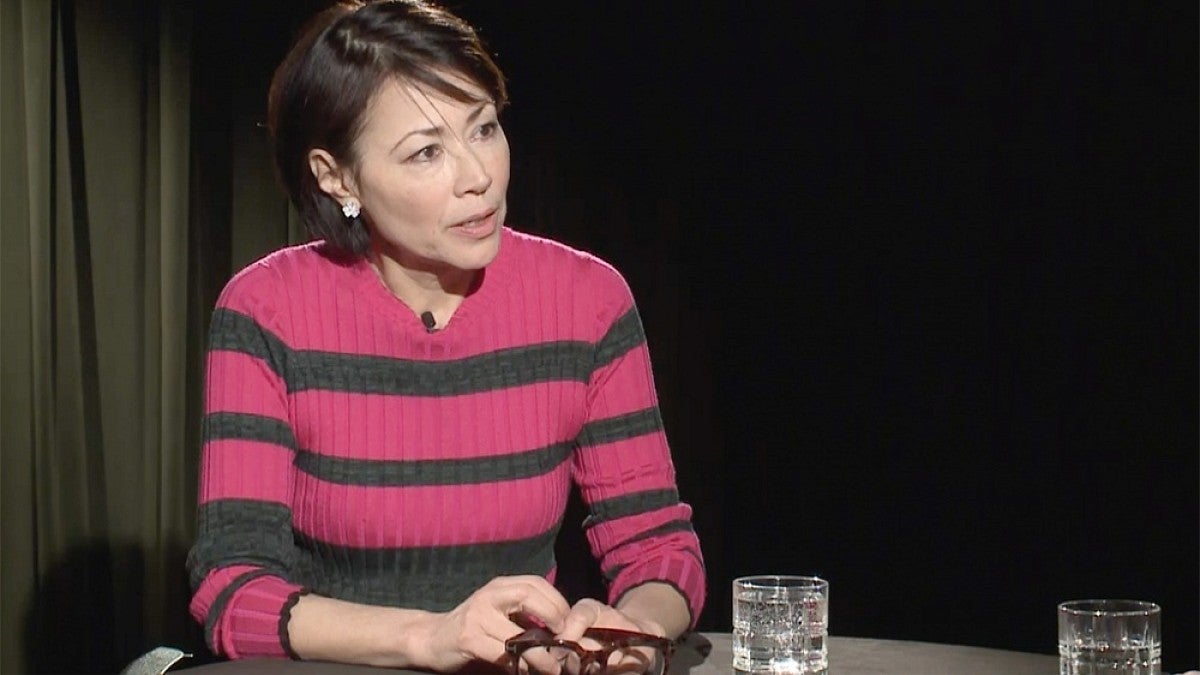In a new UO Today interview, Ann Curry, an award-winning journalist, photojournalist and UO alumnus, discussed her life and career, as well as her membership on the UO Board of Trustees and her new PBS series, “We’ll Meet Again.”
Curry has been a reporter for nearly 40 years, covering war zones and natural disasters around the globe. She worked for NBC News as an anchor for the Today Show until 2015.
Curry grew up all around the world as the daughter of a U.S. military serviceman before her family settled in Ashland. As a teenager, she would watch the news with her father and learn about current events such as the Vietnam War, Watergate and the civil rights movement. The two would often enter into intense political debates over dinner.
“I’d say, ‘Well, Dad, they have a point, what are we doing in Vietnam?’ and then he’d say, ‘I can’t believe you’re my daughter!’ And then this all-out debate would begin,” Curry said. “It would happen so often that my brothers and sisters would step up from the dinner table, pick up their plates, and sometimes eat in the living room because they wanted to avoid what was going to happen. And my dad and I would talk about issues, and I came to conclude that what mattered a long way from Ashland, Oregon, way across the ocean, mattered to me, to my family, to my community.”
A deep fascination with history also helped lead Curry to a career in journalism. The Holocaust, and how it was reported, was of particular interest. Feeling an intense compassion for the Jewish people, a young Curry even tried to teach herself Yiddish.
“I vowed to be the kind of reporter to fight for stories that matter,” she said. “I kind of had a ‘not on my watch’ moment. So I think that’s really what lead me to think about the power of information, the power of knowledge.”
Long before her international reporting on human suffering and genocide, the teenage Curry never thought she would go to college. At the insistence of a high school English teacher, at the last minute, she applied to just one: the University of Oregon. Through student loans, part-time work and the help of small community scholarships, Curry attended the School of Journalism and Communication and graduated in 1978.
Curry became member of the UO Board of Trustees in 2013. Her personal history as a former UO undergraduate from a lower-income family helps guide her input.
“I know what it’s like to have a loan … although not as big as these that are today, so I worry a lot,” she said. “Really, I think, that was one of the reasons I was invited on the board. I think they recognized that I would be compassionate, especially to in-state students who are … getting an amazing deal. It doesn’t feel like a deal because it’s a lot of money, but in terms of the actual cost of educating them, the tuition doesn’t even come close.”
As a trustee, she said trying to consider the financial needs of both the university and its students has been a challenge at times.
“I struggle with the cost of education and I want to be a good voice there,” she said. “But I also don’t want the university to go into the red and I also want the university to not be seen as a football school, because it’s not, but to be seen for what it actually is, which is a great football school and a fantastic academic school . . . so balancing these things is tough, and I think the job has been even harder than I expected.”
Curry balances her responsibilities as a trustee with her work on her current television project. “We’ll Meet Again,” which airs on PBS and also streams on Facebook, is a series in which people seek out those who helped them during pivotal moments of their lives.
In one episode, a woman reunites with the National Guard helicopter pilot who risked his life to rescue her during the eruption of Mount St. Helens in 1980. In another, a gay man thanks the friend who first accepted him, stopping him from undergoing electroshock therapy.
“What these reunions have taught me is how much we mean to each other and how we can do something, each one of us for someone else, that we may not even remember but that can cause that other person’s life to turn in some way that’s more positive,” Curry said.
Curry also talked about the future of broadcast journalism, which she says has been rocked by its transition from being a public service governed by the U.S. Federal Communications Commission fairness doctrine — which until 1987 required broadcasters to present contrasting views on controversial news issues — to a more commercial enterprise.
“I would say there’s real hope, it’s just that we have to get through this period of transition,” she said. “I think that news organizations are recognizing not only their responsibility, I think the citizens are recognizing the value of journalism. I think there are more eager, young, smart future journalists coming out of our J-schools full of vim and vigor, as my father would say, who want to be great, who see this as a calling, as I have never stopped seeing it.”
For the full interview, go to the UO Today channel.
“UO Today” is a weekly half-hour interview program hosted by Paul Peppis, a UO English professor and director of the Oregon Humanities Center. Each episode features a conversation with UO faculty and administrators, visiting scholars, authors or artists.
It is produced by the Oregon Humanities Center in collaboration with UO Libraries’ Center for Media and Educational Technology. An archive of past interviews is available on the Oregon Humanities Center’s website or on their YouTube channel.
—By Sarah Eddy, University Communications


